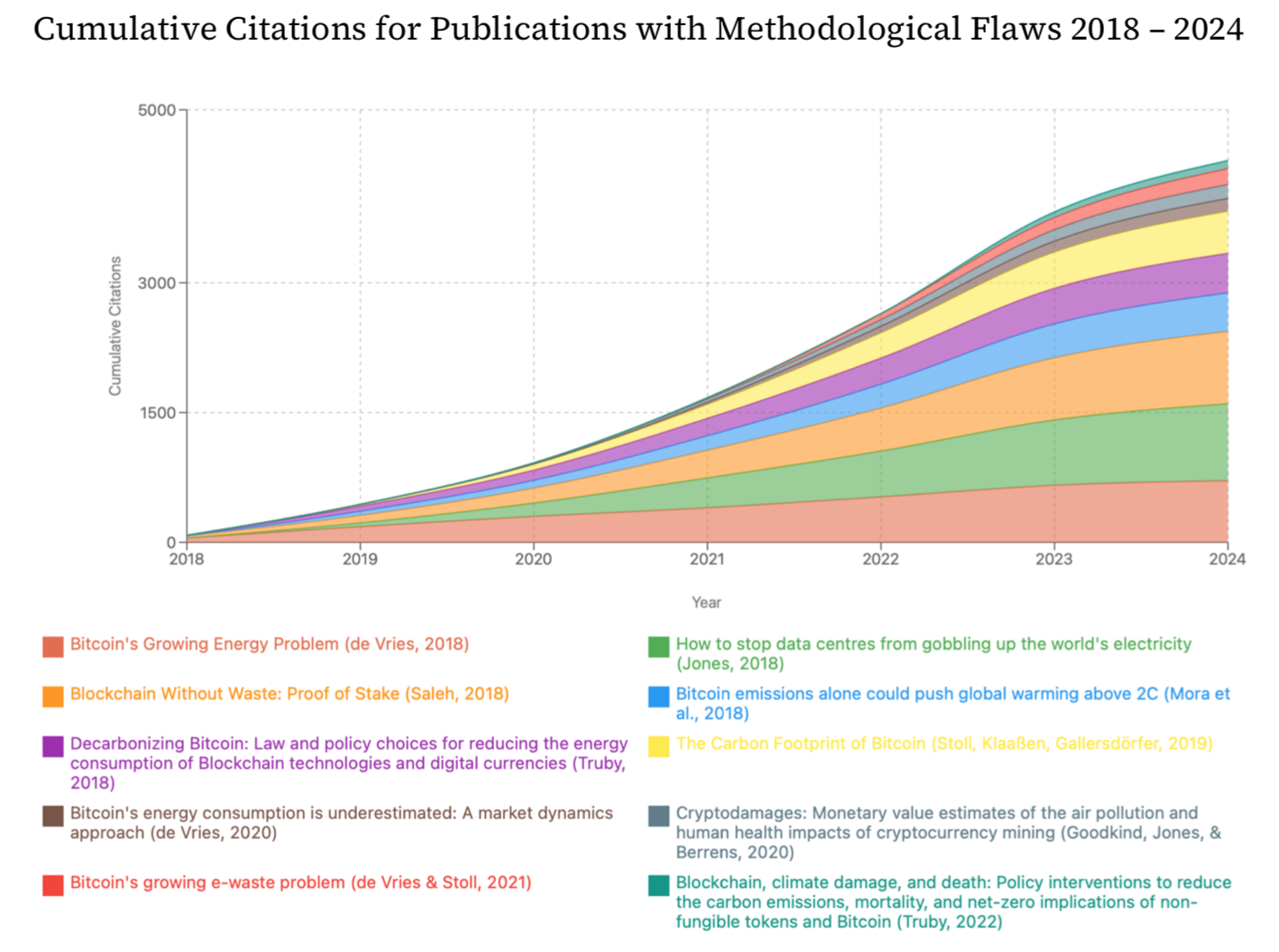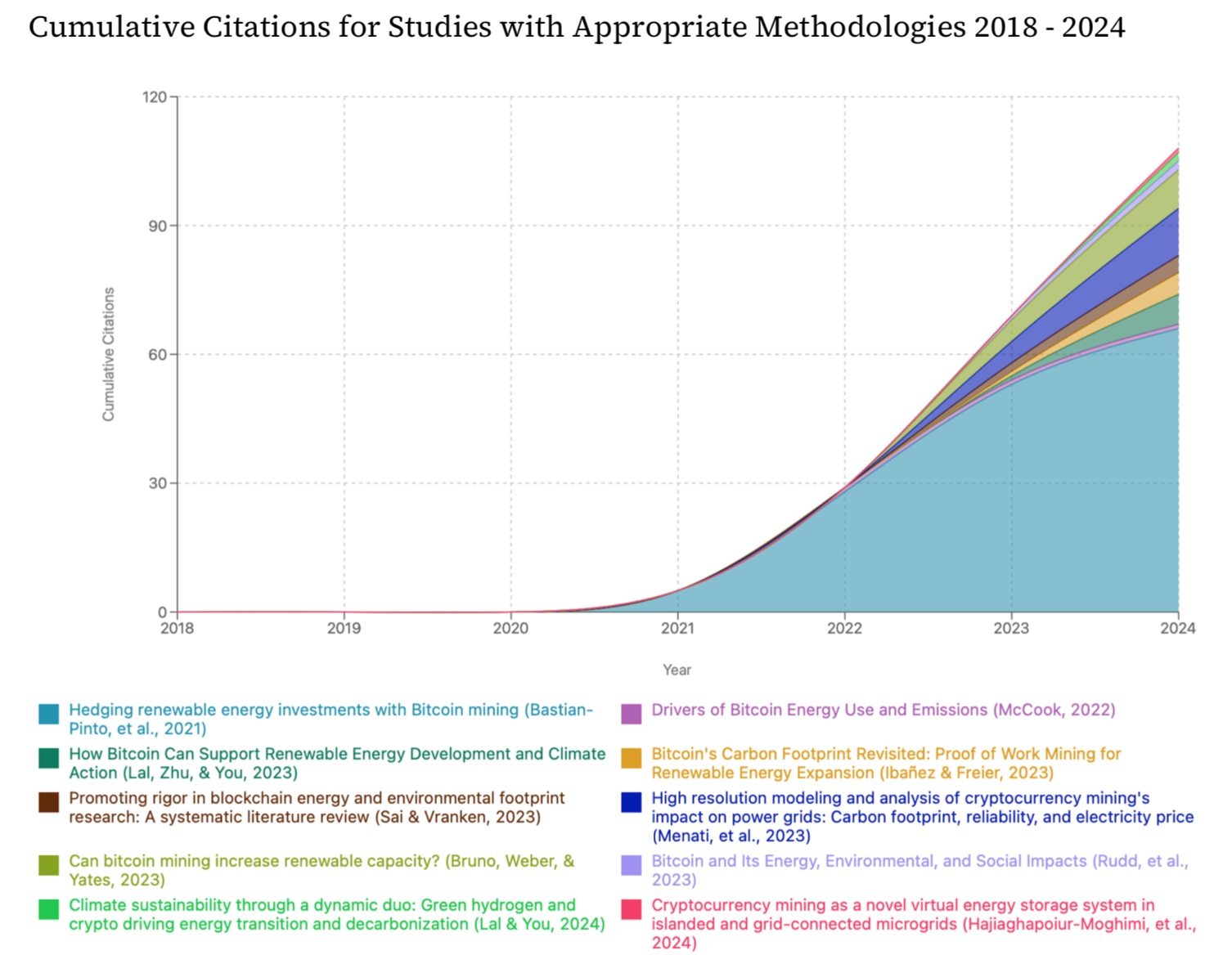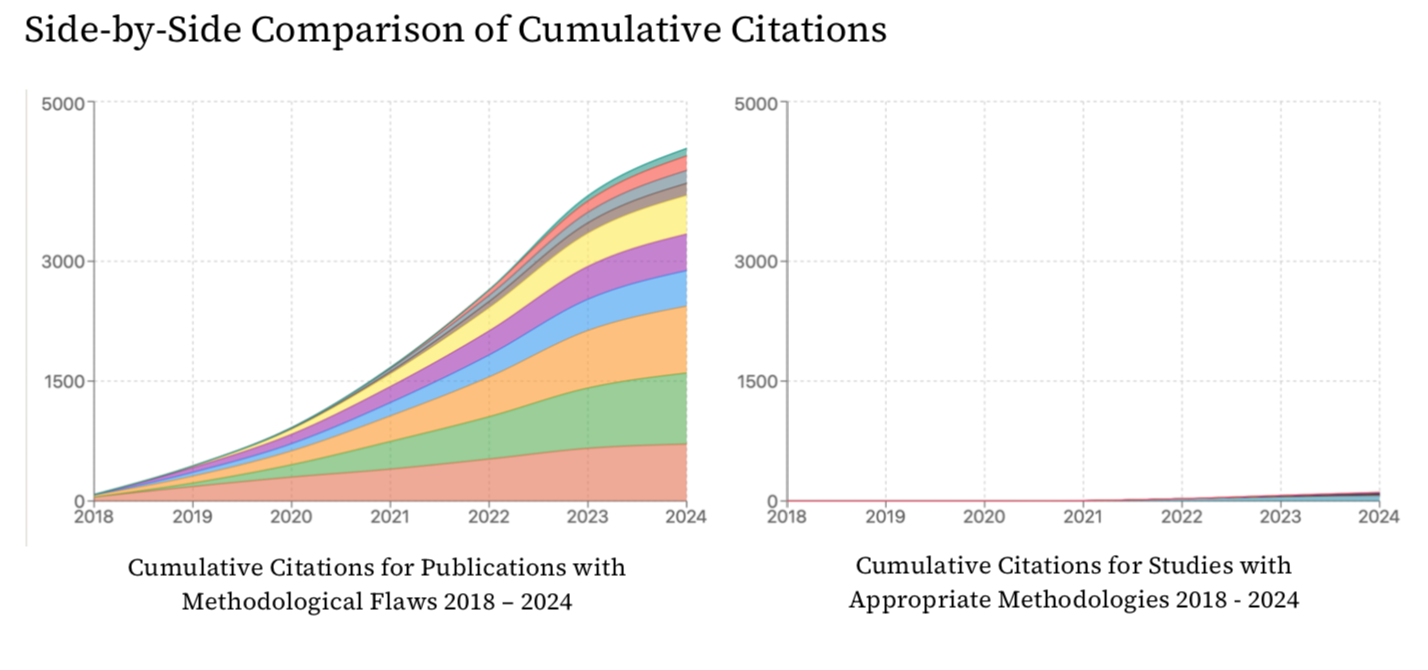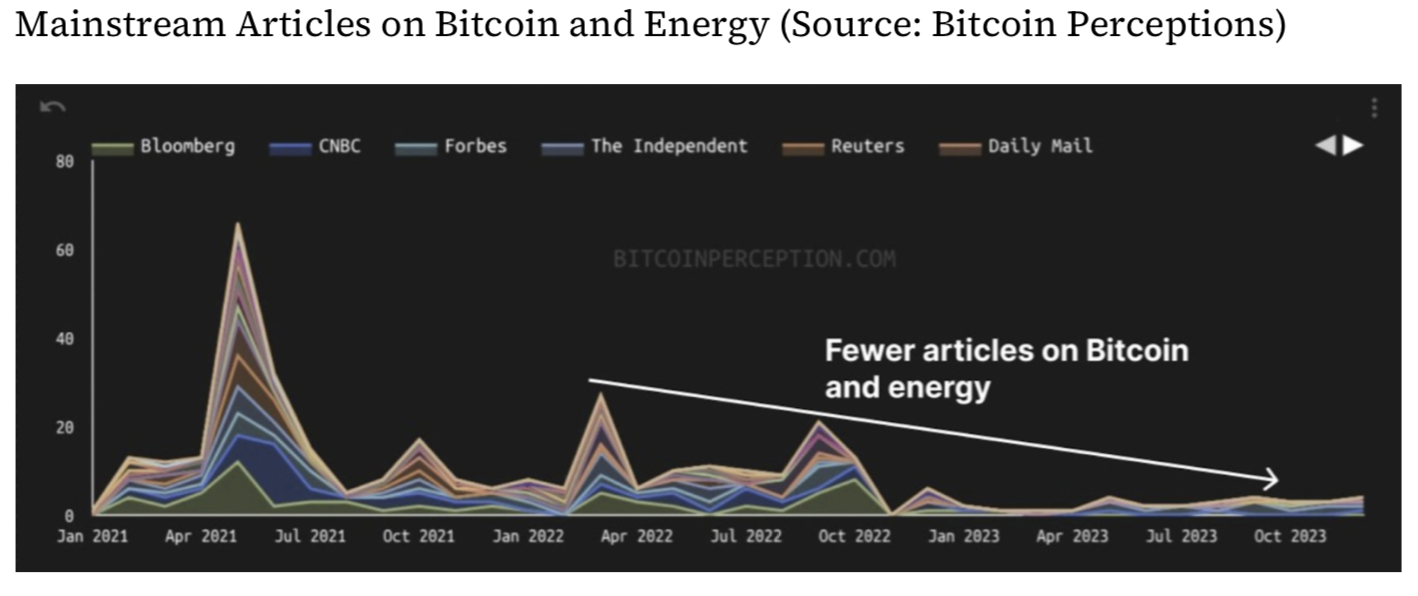Many statements about Bitcoin, such as the old narrative that Bitcoin would only have harmful effects on the climate, are primarily based on the work of various authors who spread alleged facts about the largest cryptocurrency without reliable data. The authors' statements mainly included negative aspects about Bitcoin. They initially paid no attention to the advantages offered by Bitcoin.
As a result, a fundamental opinion about the topic has formed in the population that does not correspond to reality. This is becoming increasingly clear from numerous recent studies. Despite this, the media and politicians continue to adopt the old statements unchecked, which have become established in the discourse and have even led to concrete government measures (regulation, bans, stigmatization).
The later, qualitatively better research results are currently finding it difficult to assert themselves against the resistant misinformation of the once established narrative. This also hinders the actual potential that Bitcoin offers for the environment and society.
Dr. Simon Collins has studied this phenomenon for the Digital Assets Research Institute (DARI) and has written a working paper titled "Rampant Citations and the Persistence of Misinformation about Bitcoin".
The influence of Alex de Vries
In order to investigate the spread and influence of articles that have long since been refuted, Collins looked at the number of quotes from questionable sources. One author stands out as being most responsible for the spread of misinformation about Bitcoin in recent years: Bitcoin opponent and employee of the Dutch Central Bank Alex de Vries. De Vries also set up the Digiconomist platform to expose the alleged negative consequences of digital trends, especially Bitcoin.
Work by Alex de Vries on Bitcoin:
- Bitcoin's Growing Energy Problem (2018)
- Renewable energy will not solve bitcoin's sustainability problem (2019)
- Bitcoin's energy consumption is underestimated: A market dynamics approach (2020)
- Bitcoin boom: What rising prices mean for the network's energy consumption (2021)
- Bitcoin's growing e-waste problem (2021; De Vries, A., Stoll, C.)
- Revisiting Bitcoin's carbon footprint (2022; De Vries, A., Gallersdörfer, U., Klaaßen, L., Stoll, C.)
- Cryptocurrencies on the road to sustainability: Ethereum paving the way for Bitcoin. (2023)
The most influential work by de Vries, "Bitcoin's Growing Energy Problem" from 2018, has already been refuted by experts, but is still cited in new publications today. In this work, de Vries underestimates the lifespan of mining hardware, overestimates the energy consumption of the industry and oversimplifies the mining process, resulting in numerous inaccuracies. In doing so, de Vries does not refer to existing work, refrains from correctly categorizing his methodology and merely uses anecdotes to support his theses.
His other works on Bitcoin also contain various misconceptions regarding energy efficiency in the industry or the development of mining hardware and the market. In addition, de Vries uses the "per transaction" metric, which has now been refuted several times by experts and which Truby also used in 2018 in "Decarbonizing Bitcoin" to perform calculations based on de Vries' inaccurate energy data.
De Vries' work was cited over 1,130 times in other papers and was the basis for further calculations that were ultimately flawed and led to serious misinformation that became entrenched in the discourse. De Vries' collaborators, Christian Stoll and Lena Klaaßen, were also cited almost 1,000 and 800 times respectively.
Publications with methodological shortcomings
In a graphic, Collins shows the citations from ten influential publications with methodological flaws, all based on the work of de Vries (2018).

Many of these papers do not conduct original studies, but instead compile and disseminate existing misinformation, creating a self-reinforcing cycle of inaccuracy. New researchers entering the field are immediately confronted with these flawed studies, making it increasingly difficult for accurate information to gain acceptance.
Dr. Simon Collins, excerpt from the working paper
Thus, many authors relied on the flawed study by de Vries 2018, spreading further erroneous claims and arbitrary assumptions. Quotes from the ten publications shown in the graph appeared in more than 4,000 other "scientific" publications between 2018 and 2024. Unrealistic metrics such as "per transaction" and erroneous assumptions about energy consumption (Saleh; Goodkind, et al.), e-waste, mining industry business practices (Stoll, et al.) and CO₂ emissions (Mora, et al.; Goodkind, et al.) proliferated.
From science to mainstream
The false narrative from the flawed papers was eventually picked up by the mainstream media and passed on to a wider audience in a simplified form. According to a reputable study by Sai and Vranken, there is a 10:1 ratio of scientific papers to mainstream articles. This means that there are more than 400 mainstream articles that present a false narrative about Bitcoin, with the reach of the media increasing the influence of these articles.
Reliable publications
Since 2022, increasingly accurate and reliable studies on the energy consumption of Bitcoin have been published that "adhere to strict standards and ensure that the data is verifiable and the results reproducible". Collins has also produced a graphic with citations from ten reputable publications.

A key difference between these publications and the flawed works is the narrative. While the publications based primarily on de Vries' work are predominantly negative towards Bitcoin and mining, the authors of the reliable publications present the aforementioned aspects almost exclusively in a positive light. Further differences are the number of citations and the associated headlines.
Sensation vs. seriousness
The flawed publications were cited over forty times more than the reliable studies, which Collins attributes to the three- to five-year head start in controlling reporting. If you compare the graphs of citations on the same scale, this difference becomes very clear:

In addition to the time lag in reporting, there is the fact that the unverifiable claims in the flawed papers are more suitable for sensational headlines than the real results of the high-quality studies. The reputable sources cannot be used to make the same grandiose, sweeping claims of the dubious publications.
Claims such as that Bitcoin emissions could be responsible for a 2°C rise in the Earth's temperature or that Bitcoin is directly responsible for the consumption of gigaliters of water because a coal-fired power plant evaporates this water. Or that mining hardware can only be used for 1.29 years before it is disposed of. Or that Bitcoin mining was responsible for more than 350 deaths in the US and China in 2018.
Dr. Simon Collins, excerpt from the working paper
Thus, with the advent of serious studies, media reports on Bitcoin's energy consumption have also declined significantly.

Conclusion
Dr. Collins' study has shown how important Bitcoin education is for the future of the asset and ultimately the planet. In particular, the flawed work of Alex de Vries has led to the formation of a biased knowledge base on Bitcoin's energy consumption and misinformation dominating the relevant discourse.
If the reputable sources receive more attention, the misinformation could gradually weaken and the discourse could slowly change, says Collins. For this to happen, research with academic integrity and its review as well as open and nuanced discussions would need to be encouraged. This could ultimately lead to the rebalancing of pro and con Bitcoin voices and create a diverse ecosystem of knowledge.
We need to create a healthy ecosystem where facts can thrive, myths are challenged and genuine concerns are addressed thoughtfully. In this balanced environment, Bitcoin can then be accurately evaluated on its merits and weaknesses.
Dr. Simon Collins, excerpt from the working paper







